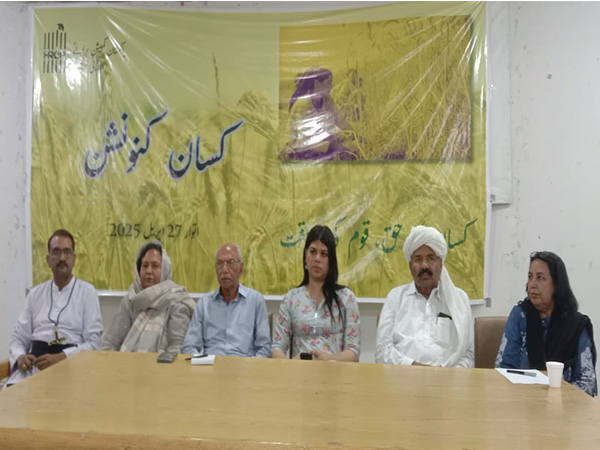Pak-born South Asia expert warns of deepening political crisis in Islamabad
Jul 22, 2024

London [UK], July 22 : Pakistan is currently facing significant political instability marked by a complex web of factors. The frequent changes in leadership and political turmoil have severely disrupted the governance structure.
Arif Azakia, a South Asia expert of Pakistani origin, recently remarked on his YouTube channel that there is a growing prediction from various quarters suggesting that declaring a state of emergency might be the only viable option left for Pakistan.
In a video message Arif said, "From various quarters, a prediction is emerging that declaring an emergency in Pakistan may be the only remaining option. You are aware that Shahbaz Sharif currently leads the government, but it is widely known that his agent, Asim Munir, effectively controls the administration. Asim Munir, who can be considered a political figurehead, is perceived as an agent and is not actively engaged in governance."
https://youtu.be/t3dPIHJR2QA?si=UzlDFci2hK2QJxHQ
Arif noted that managing Pakistan's affairs under Shahbaz Sharif's government has become increasingly challenging. He highlighted the current political instability in the country, warning of potential temporary impacts on international relations.
Arif said, "Indeed, there is currently political instability in Pakistan which could temporarily impact international relations. The situation appears to be spiralling out of control. Shahbaz Sharif's government is expected to conclude within 18 months or possibly sooner, raising the likelihood of a technocratic government coming into power. A technocratic government typically involves the military appointing a prime minister, who then appoints individuals under the guise of technocrats--one as defence minister and another as home minister."
Arif mentioned that an emergency could have been declared already, but the United States is preventing its enactment. "An emergency would have been declared by now, but America is preventing its implementation. They are also not allowing martial law or emergency measures because the way America operates its democracy makes it challenging for this government to function as it wishes" said Arif.
Internally, Pakistan faces significant socio-economic challenges, including poverty, illiteracy, unemployment, and infrastructure deficiencies. These issues have exacerbated discontent among the population and provided fertile ground for political unrest and extremism.
As of recent years, Pakistan has grappled with a volatile political environment characterized by corruption allegations, power struggles between civilian and military leadership, and challenges in effective governance.
The frequent changes in government leadership, such as the current tenure of Shahbaz Sharif, have been accompanied by allegations of mismanagement and governance failures.




















